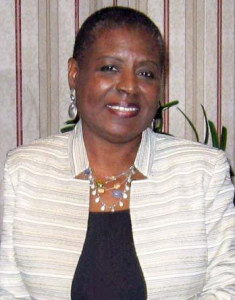
Florida among worst in restoration of rights

By Dorothy Inman-Johnson
Special to the Outlook
Since the rules for the restoration of rights of felons is determined by each state, there is a hodge-podge of state laws governing what rights ex-offenders will have once released from prison. Some are very liberal like Maine and Vermont in which felons lose no rights, and can vote while incarcerated by absentee ballot. Other states_ Illinois, Indiana, Massachusetts, Michigan, Montana, New Hampshire, North Dakota, Ohio, Oregon, Pennsylvania, Rhode Island, and Utah_ automatically restore ex-offenders’ rights when prison terms have been completed. Most, however, restore all rights after the completion of incarceration, parole, and probation; with a few adding the stipulation that restitution and fines must also be paid.
Florida is not in any of those three categories. It is among the four (4) worst states in the country in laws preventing ex-offenders regaining their rights as U. S. citizens upon release from prison. The only states with laws worse than Florida are Mississippi and Tennessee in which certain crimes result in permanent loss of rights unless the Governor chooses to accept a petition for a pardon. Wyoming’s laws are similar to Florida, with the long waiting period before being allowed to apply to the governor or clemency board to have rights restored.
Stated simply, Florida has made it as difficult as possible for those who have paid their debt to society for their crimes to be able to vote and have their civil rights restored. In this state, there is a 5 to 7 year waiting period after being released from prison before the ex-offender can even apply to the Governor or Clemency Board for rights restoration. Then it can take years before the application is fully processed and the Clemency Board takes action to approve or deny. Even for less serious crimes that do not require Clemency Board hearings, a waiting period of five years is required after completion of the prison term, parole, and probation to petition the court for restoration of rights. For more serious crimes, such as murder or sex offenses, a waiting period of 7 years is required after completion of prison term, parole, and probation before the ex-offender can apply to the Florida Clemency Board to have voting and civil rights restored.
According to Wikipedia, “The effect of Florida’s law is that in 2014 more than 1 in 10 Floridians , and 1 in 4 African American Floridians, are shut out of the polls because of felony convictions”, and the state’s highly restrictive laws in restoring voting rights. This means that as many as 25 percent of Black Floridians are denied the right to vote even though they have completed sentences and all legal obligations. Yet, government claims it supports re-entry programs that allow people who made mistakes to be successful once they return to their communities. It would help if Florida would do its part in restoring their citizenship rights.
That’s why I am so happy to report that the Floridians for Fair Democracy is doing something about it. They have kicked off a petition drive to have a Florida Constitutional Amendment added to the 2018 election ballot that would allow all ex-offenders, except murderers and sex offenders, to have their rights automatically restored once they have completed their sentences and probation; making Florida’s rights restoration laws more similar to those in most states. The organization must collect signatures from at least 10 percent of Florida voters to get the proposed amendment on the ballot. So far, they have collected 71,000 signatures, allowing them to reach the first threshold of having the ballot language reviewed by Florida Attorney General Pam Bondi and the Florida Supreme Court. To reach the 10 percent benchmark, however, more signatures are needed. I urge every person of conscience to sign the petition if you have the opportunity to do so. Our rights are at risk when we do not use them to protect the rights of others.
Also, Florida A & M University will sponsor a program at Trinity United Presbyterian Church at 620 Gore Avenue on Thursday, April 13, at 6:00 p.m. titled “Restorative Justice Re-Entry Symposium: I’m Back, Now What?” Information is a mighty weapon in our fight for justice. Once we are aware of the wrong, I hope it compels us to do something about it by speaking out, signing a petition, or just attending a program to become more informed. We are charged by God to be our brothers and sisters’ keepers.
( Send comments to dotinman-johnson@hotmail.com.)







